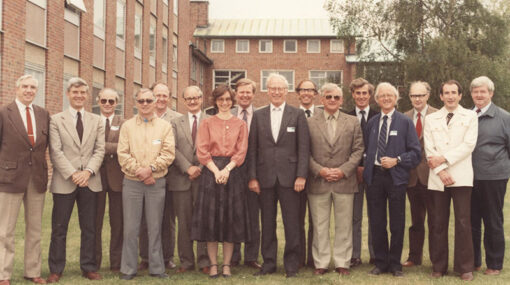Featured articles


Featured articles
Firm News
Hugh James celebrates significant promotions across its Cardiff, London and Manchester offices
01/05/2025


Comment
Featured articles
Major breakthrough for thousands in military hearing loss claims
08/07/2024
Firm News
See all articles




Featured articles
Firm News
Hugh James celebrates significant promotions across its Cardiff, London and Manchester offices
01/05/2025
Comment
See all articles


Deals
See all articles
Sports Deals
WSA and Hugh James renew partnership to continue providing members with expert legal services
16/06/2025
Case Study
See all articlesCase Study
Military case studies
British soldier wins £450,000 for preventable non freezing cold injury
30/06/2025
Case Study
Medical negligence case studies
Family’s fight for answers leads to Prevention of Future Death report following death of Valerie Hill
27/06/2025
Case Study
Hospital negligence case studies
Medical negligence case studies
Parents of 4-day-old Etta Lili Stockwell-Parry say lives were turned “upside down” by care failures that led to her avoidable death
05/06/2025

Case Study
Military case studies
Preventable non-freezing cold injuries suffered by military personnel
25/02/2025

Asbestos & mesothelioma case studies
Case Study
Father of three David Squires determined to live life to the fullest despite mesothelioma
04/02/2025

Witness Appeals
See all articles
Witness Appeals
Former Miners and their families represented by Hugh James sought for BBC Documentary
20/05/2025

Witness Appeals
Witness Appeal: Did you work with Ronald March O’Halleron (known as Ron) at St Anthony’s Tar Plant?
07/05/2025

Witness Appeals
Witness appeal launched following death of former scientific officer from asbestos-related cancer
28/03/2025
Podcasts
See all articlesCharities, Community, & CSR
See all articles

Charities, Community, & CSR
Firm News
From sky to support: Alan’s skydive for Trust House and We-Together
26/11/2024

Charities, Community, & CSR
Firm News
Hugh James Rugby Lunch 2024 raises £29k for charity partners
15/11/2024

Charities, Community, & CSR
A memorable day in Horatio’s Garden: Treasure hunt and afternoon tea
26/06/2024

Charities, Community, & CSR
Hugh James continues to support Horatio’s Garden Wales | Nurturing the wellbeing of people after spinal injury
21/05/2024
Webinars
See all articles









